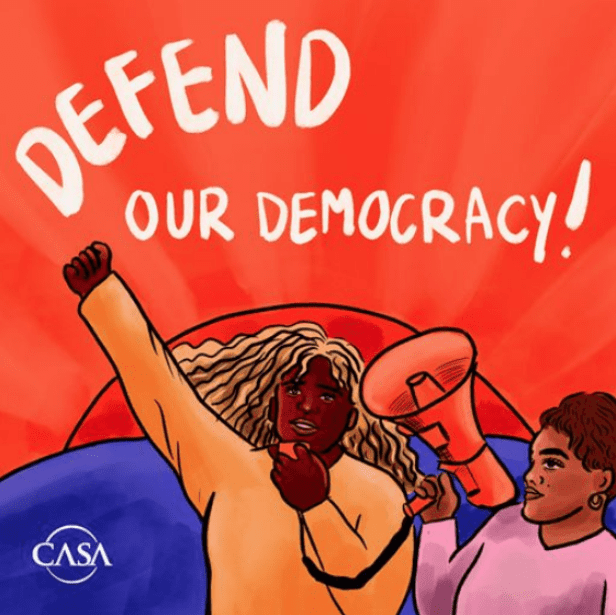2020 Voter Engagement Campaign
POST ELECTION REPORT
Executive Summary

Nonpartisan Civic Engagement: a long term organizing process
We never stopped engaging voters -even after election day. We invited voters to join us in defending democracy at election defense rallies in Harrisburg immediately following election day and a mass member meeting on November 22nd, where we engaged them around issue campaigns like climate justice, immigration, and economic justice. We look forward to continuing to engage with our members and voters across our footprint in redistricting efforts in both Pennsylvania and Virginia.

CASA is the foremost Latino and immigrant organization
in the mid-Atlantic region and a national leader in
supporting immigrant families and ensuring that all
individuals have the core support necessary for full
participation in society.
CASA was founded in 1985 and its mission is to create a
more just society by building power and improving the
quality of life in working class and immigrant
communities. CASA’s 100,000 lifetime members are
100% immigrant, Latino, and working class people whose
commitment, courage, and solidarity has helped CASA
grow to where it is today.
Our vision is for a future in which we stand in our own
power, our families live free from discrimination and
fear, and our diverse communities thrive as we work with
our partners to achieve full human rights for all. As
CASA has expanded to new geographies over the past
several years, the organization has emerged as a regional
immigrant powerhouse with deep roots in dozens of local
communities.
Program Snapshot
Direct outreach to
an additional
Engaged
action additional
Recruited over
Election Day
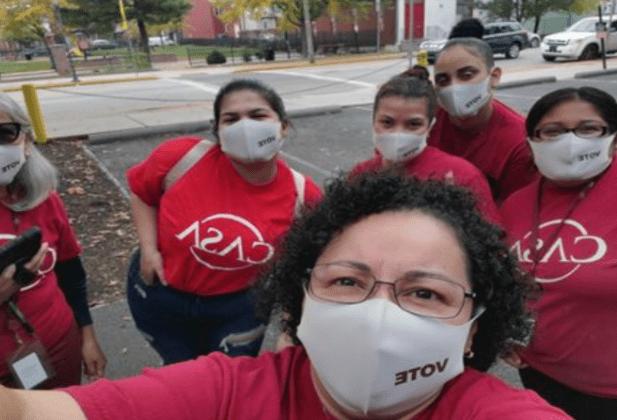
Where We Worked
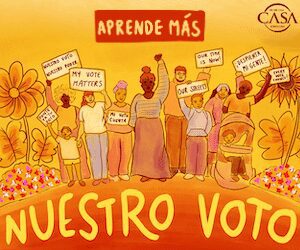
In Pennsylvania, our virtual phone and text programs targeted Latinx voters in Dauphin, Lancaster, York, Montgomery, Chester, Adams, Delaware, Lebanon, Cumberland, and Franklin Counties, in conjunction with the statewide coordinated campaign with Keystone Votes and statewide partners. Our field voter registration, GOTV, and election day programs focused on Latinx voters in our core five counties of Chester, Montgomery, York, Lancaster, and Dauphin. We emphasized targeting Puerto Rican households, first time voters, and low propensity voters. In Virginia, our program was coordinated with the Virginia Civic Engagement Table and targeted Latinx voters in Fairfax and Prince William Counties.
"Once again, I feel happy that the Latinx
community is showing up with our vote in this
presidential election. This is my third
consecutive time voting. It fills me with joy to
see people excited to exercise their right to
vote for the reconstruction of a nation that for
four years has been battered and mistreated.
Our vote is powerful."
- Tomas Berrios, Virginia Voter
Our Work
VOTER EDUCATION
VOTER REGISTRATION
VOTE BY EMAIL
GOTV
VOTER PROTECTION
As election day approached, CASA played a primary role representing not only our organization but the statewide coalitions as the primary face of the statewide efforts in our local jurisdictions, particularly in Lancaster and York, where CASA staff attended election commission meetings, met and communicated with election administrators regularly, and conducted public advocacy to maximize voter access, particularly for voters for whom English was a second language.
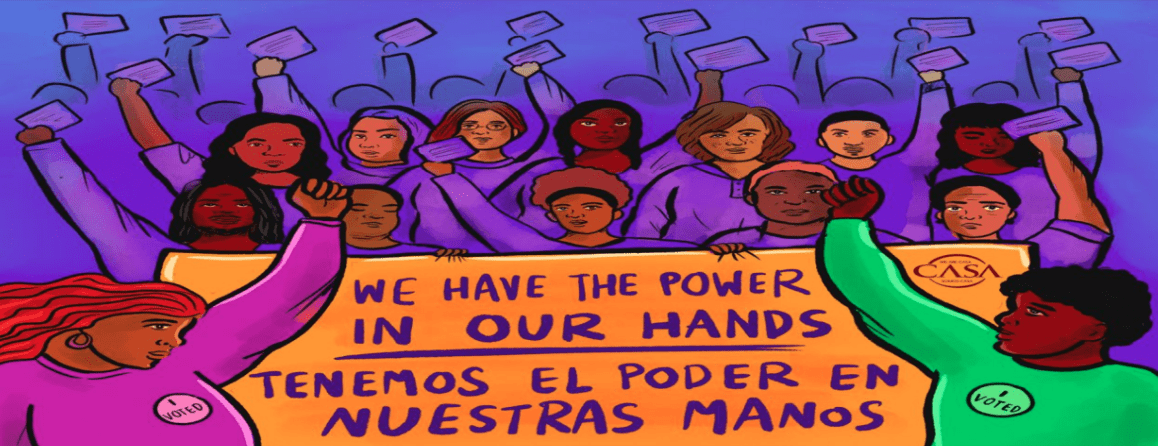
ELECTION DAY
POST-ELECTION PROTECTION
Our Program - By the numbers
PROGRAM HIGHLIGHTS

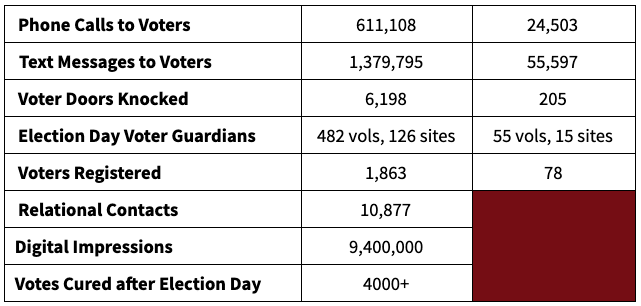
OUTREACH ACTIVITIES AND ENGAGEMENT
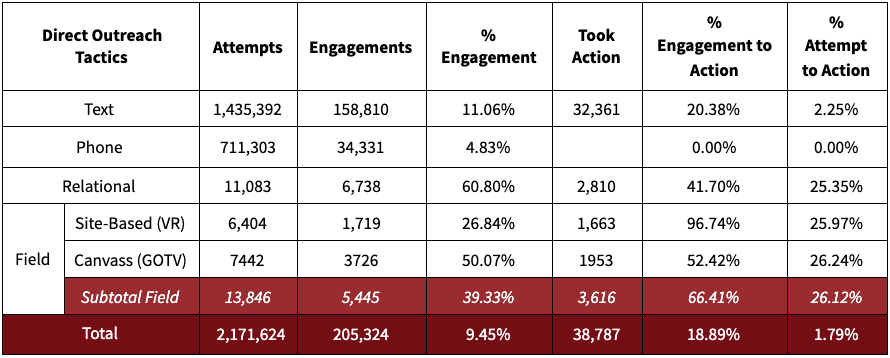
DIGITAL COMMUNICATIONS

TRADITIONAL MEDIA - SPANISH LANGUAGE

The work continues
LEARNING, IMPROVING, GROWING
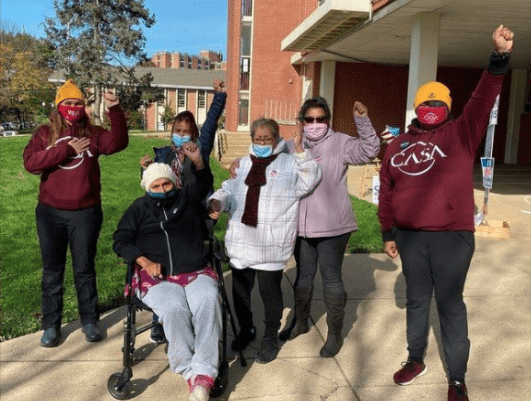
FAIR REDISTRICTING
A significant part of ensuring that the immigrant and working class community have their voices represented in government is ensuring that political districts are drawn fairly and equitably. As Pennsylvania and Virginia prepare to re-draw district maps in 2021, the work must begin immediately to engage our community in the process. This work must begin early with educating the community about the process and how they can get involved, and will continue as we work with our partners throughout the Commonwealth to engage in collective planning and unity mapping.
